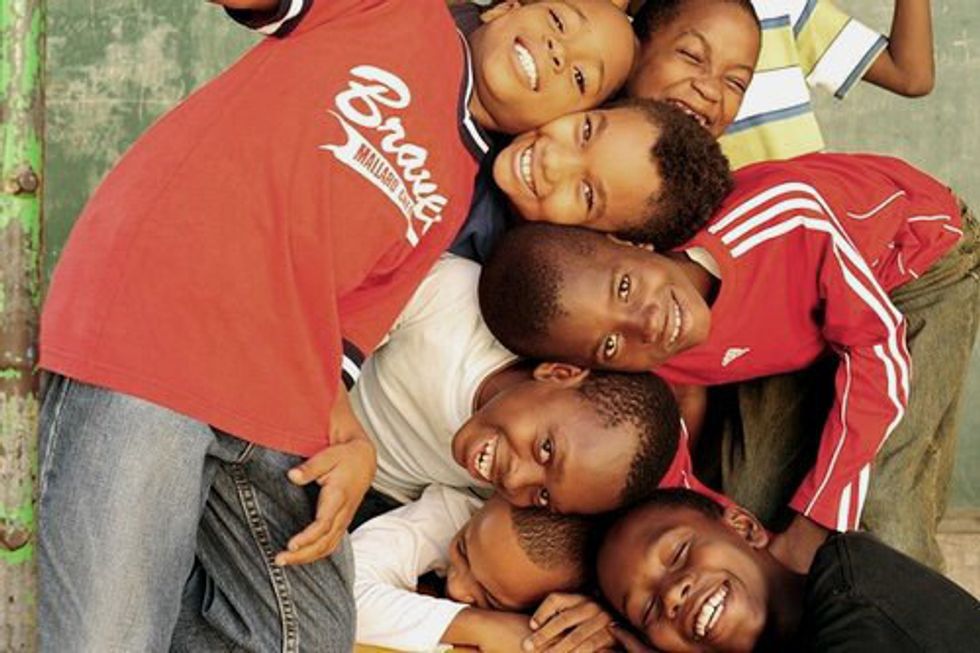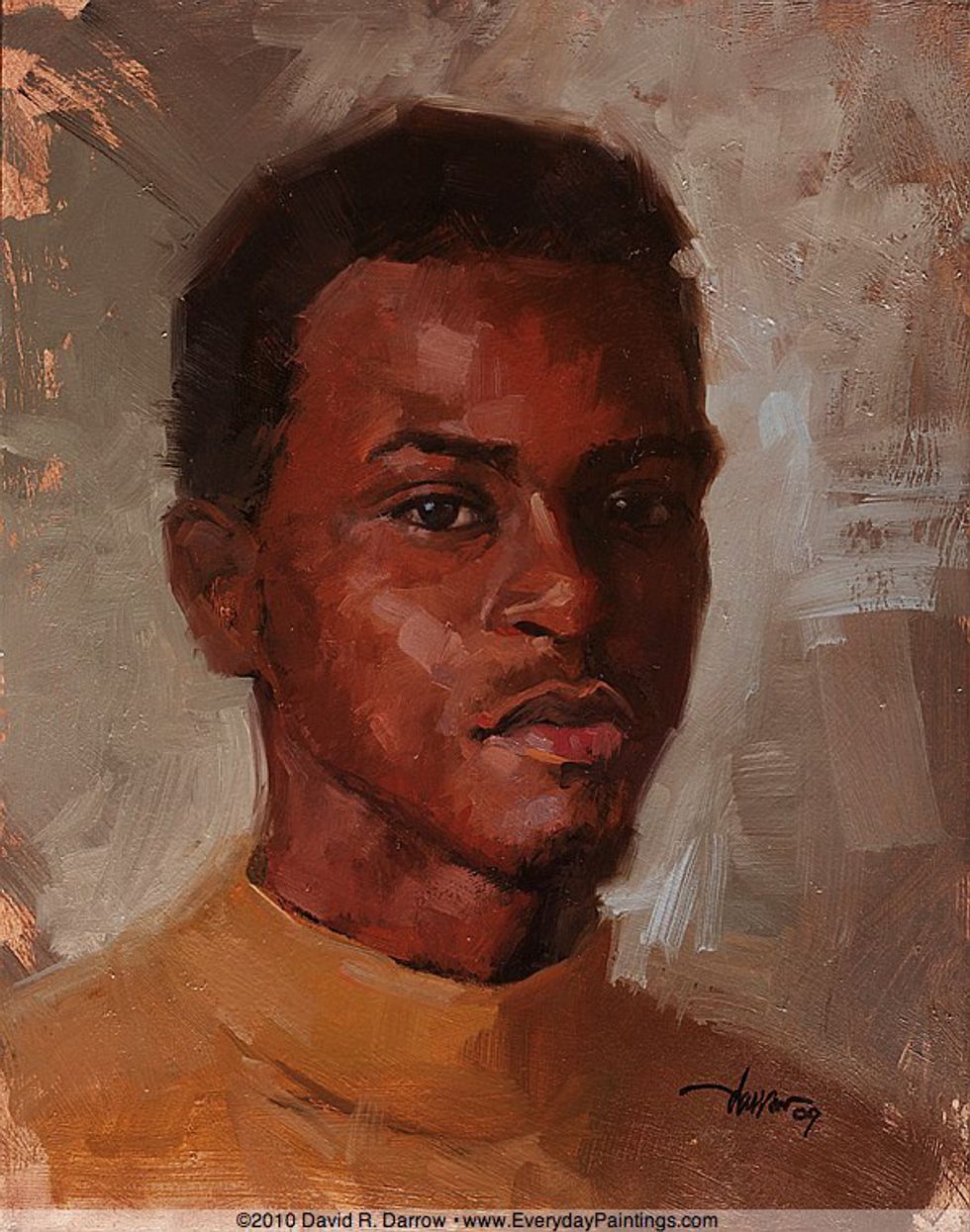One day, black men and boys will be able to live their lives in this society as freely and happily as the Christopher Robins we once saw on TV as children. They will grow up to understand how to love who they are and love what they bring to the world and their communities. Black boys will learn that they can be smart, creative, and passionate without being ridiculed and discouraged by their peers and their community. Black men will know what it’s like to have emotional literacy, personal accountability, social sensitivity to women’s issues, developed positive self-images and will live a fuller and happier life. We will be able to reject harmful stereotypes about men that slowly but surely, kill us and our sons. Respectability politics, misogynoir, male passivity, mental health issues, classism, ageism, internalized white supremacy and sexual exploitation will taste bitter in the mouths of black men as the pungent juice the seep from the bitter fruit we call toxic masculinity. We eat from this fruit only to fill our hallow bellies with hope and meaning to silence the groaning pain of our black inequity. While we continue to eat and digest this fruit, we are ignorant to realize that the ground called society has swallowed our black bodies’ whole as we bite into this fruit that once hanging from the tree of injustice. It is only there, after we have fallen face first into the belly of the cruel and cold earth, that we realize our fatal mistake, it would be better off if we were never born black and male.
Toxic Masculinity in the lives of black men has often led to the mass genocide of black men and women across the country. Whether it be in the form of sexual violence against black women, gang related killings amongst black youth, suicide in black boys (especially in the queer community), mass incarceration, or police brutality; black masculinity has slowly but surely kept black people in a state of stagnation in our society. Unfortunately, when we have these rapper and athletes being praised for the degrading women, indulging in heavy drugs, flaunt financially irresponsibility and be the “black man” that society wants them to be, there is a protection of this sick toxin that makes black men and boys believe that their own humanity is based off of these external factors alone. As black people empathize with these unrealistic, almost superhuman expectations of black men, we often times doubt the ability of black boys in the areas of education and emotional sensibility with the underlying expectation that he will become a strong football player or an extremely successful “black, Christian business man” or the “good black man”.
We never find interest in the true cultivation and emotional well being of black men and boys and the external persona of black men becomes more important than the humanity of these black bodies. When black men do show interest in their own emotional health or self-expression, many see this act of self-care as a feminine quality and more specifically a quality belonging only to that of black, queer men. We also fear that black boys will feared in the society by the white community and many times that fear has led to death. We then do all we can to make sure that they are respectfully as possible and see to it that our sons are not to threatening to white folks and going so far as to acknowledge the concept of the "white folks in the house so act right" narrative and teach kids to accommodate this white fear. In turn, we train black boys to conduct themselves in a very particular way to be accepted and to avoid falling out of line with this narrative of toxic black masculinity or the heteronormative standard for black men.
We may not realize or want to acknowledge this but, when we tell young black boys that the only way for them to be successful in this “world” is to have a suit, a clean cut haircut, a shaven face, a proper educated vocabulary, and wear a nice tie, what are we really telling him ? Pretty much, we are feeding him the respectability politics of this racist, classist, white supremacy “world” in hopes that he may one day reach his peak exceptional Negro status. We would like to think that if he is not a rapper, an athlete, or the thug, he must be the “exceptional negro” who speaks with poise and sophistication, who dresses much like how a successful (mostly white) business man would, who will have the traditional wife and child, and who is in no way a threat to anyone, especially the white men who may lead him to success in the future.
Parents often times mold and shape their black boys so that they are digestible to a hateful and fearful society, hoping that he may not have to experience the horrors of being black. From the time a little black boy is born, we unconsciously expect that he will fit a mold for black men that is most favorable without realizing that this mold is really a prison. We employ little black boys with strength that they simply don’t have, attractions that they haven’t yet felt, fear that they haven’t yet experience, love that there only allowed to feel under certain conditions, aggressions that they don’t understand, a tolerance that they are forced to have, and a black life that can only be lived under the confines of someone else’s imagination. Much like a prison, we have expectations that have been set not by parents, but by a society’s limited and inhumane view of the black male body.
Raising black boys as if they are constantly preparing for war is the norm for black parents and we would like to blame this preparation on white supremacy, however this very much so is an internal issue. This type of coaxing is not all about race but, very much so about gender as well. There are many elements that we use raise a boy (sexuality, strength, and patriarchy etc.) but, there are a plethora of other elements that we use to raise a black child and we must understand where and how these things intersects. We must understand the existence black boys and men outside of a pessimistic realm, concentrated on utility of a black man in a white supremacist society. We must do away with our own personal fears and anxieties about the way that black men are treated in America and remind little black boys that they can be and do whatever they put their mind to. We must learn to see beyond the shackles of toxic masculinity and racism, understanding that black boys and black men are still human and very much so largely dynamic and beautiful collage of human.
Think about how difficult it would be to lower someone’s humanity in relationship to yours, all from them to be digestibly to be consumed by a world that hates their black skin and black humanness?























